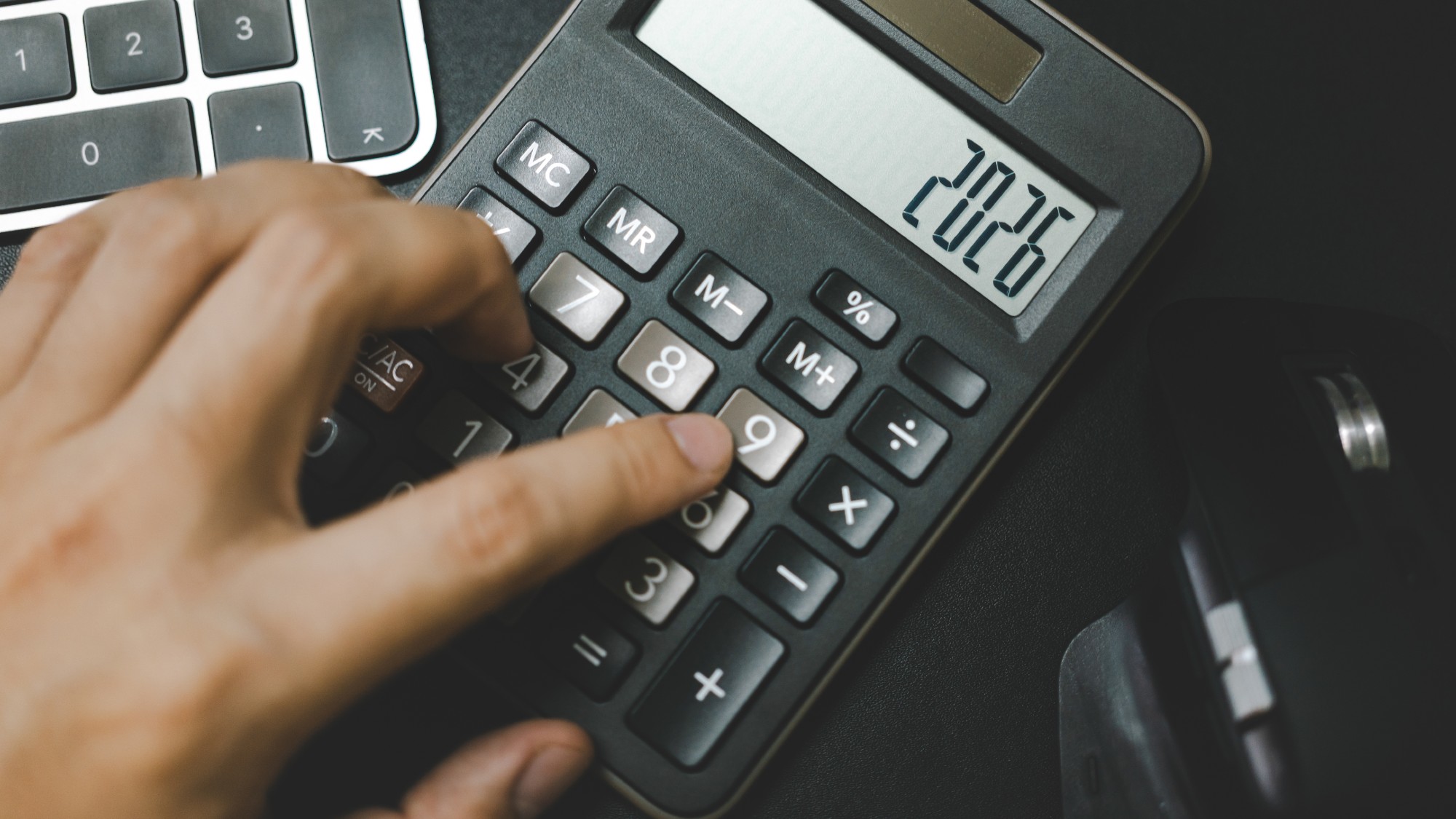The best time of year to buy a car
Some months — and days — are better than others

If you are hoping to land a deal on your next car, the last few months of the year is the time to strike. Often, carbuyers can find the best deals starting in the fall through early winter, ahead of new models hitting the lots in the new year.
But if you really want to squeeze as much savings as possible out of your next car purchase — especially amid potential price hikes due to tariffs — you can get even more granular about timing than just general seasons. Certain parts of the month and even specific days of the week can increase your odds of shaving off just a little more from the price.
When can you get the best deal on a car?
October through December is generally the best time to purchase a car. But if you "want to get the best deal, you might want to wait until December, even though you'll run the risk of having fewer cars to choose from," said Edmunds.
The Week
Escape your echo chamber. Get the facts behind the news, plus analysis from multiple perspectives.

Sign up for The Week's Free Newsletters
From our morning news briefing to a weekly Good News Newsletter, get the best of The Week delivered directly to your inbox.
From our morning news briefing to a weekly Good News Newsletter, get the best of The Week delivered directly to your inbox.
If you don't want to hold out until December, at least try to wait until the month's end. That's because "you're likely to find competitive car-buying deals toward the last week of any month or quarter," since "this is when car salespeople are more motivated to slash sticker prices even if it means they'll get lower commissions," said MarketWatch.
As for which day of the week to go in, "Monday is usually the best day of the week to buy a car" since "showrooms will be the least busy," said MarketWatch. However, Tuesday or Wednesday can also be a good bet, especially in areas where dealerships aren't open on Sundays, said Edmunds.
Does the same timing apply for buying a used car?
In short, yes. Fall tends to be a "good time" to buy a used car, said GOBankingRates, especially if you plan to "head to your local car dealer," as "you'll likely find that they're trying to move their current inventory off the lot as quickly as possible."
But the start of the calendar year, when the weather is colder, may be even better. If you have a high level of control over your timing, "New Year's Eve and New Year’s Day" in particular "are the best days of the year to buy a used car, because there are 47.9% more deals than average," said CNBC, citing analysis by iSeeCars, a search engine for used cars. Martin Luther King Jr. Day marks "the second-best time of year to buy a used car, with 43.3% more deals than usual."
A free daily email with the biggest news stories of the day – and the best features from TheWeek.com
Another "sweet spot" for used car buyers is from early April to early May, said The Wall Street Journal, because "when people get their tax refund back in the spring, a lot of them go car shopping." This can lead dealerships to "compete for customers by offering deals."
Are some years better than others for buying?
It is important not to lose sight of the forest for the trees when car shopping. While certain days of the week and periods of the year can offer better deals, the broader context of what is going on with the economy that year can have a sizable impact on prices as well.
In 2025, a major thing to watch is Trump's tariffs and how they are affecting the auto industry. This year, buying sooner than later may actually end up being less costly, since "by the end of the year, if not sooner," it is expected that tariffs "will force sticker prices to rise significantly," said The New York Times. Given added costs on imported cars and car parts, "prices could be 8% higher," effectively "pushing the average selling price of a new car above $50,000," said the Times, citing Cox Automotive. Plus, due to the added costs that automakers have been absorbing, "shoppers will see fewer options," particularly when it comes to "entry-level models" affordable to buyers on a budget, said auto industry publication Car and Driver.
For buyers planning to take out an auto loan, the trajectory of interest rates that year is also important to keep an eye on. Although personal factors like your credit score hold sway on the rate you receive, the broader interest rate environment matters too. "When the federal funds rate is up, auto loan rates typically follow suit," said Experian; "once inflation becomes more manageable and the Fed cuts its interest rate, however, that move trickles down to lenders, which often lower their interest rates as well." In August 2025, Federal Reserve Chair Jerome Powell "gave a tepid indication of possible interest rate cuts" ahead, though decisions will ultimately hinge on labor market conditions and the impact of Trump administration policies, said CNBC.
Another change this year that buyers should factor into their calculations is Trump tax bill's new auto loan interest deduction. The tax break, which "will start with purchases made in 2025 and run through 2028," allows car buyers to "write off up to $10,000 a year in interest paid on qualifying auto loans," with no need to itemize, said Kiplinger. There are several caveats to the deduction, however, including that it "doesn't work with used cars or with loans taken out before 2025," and that the car you purchase "must have its 'final assembly' in the United States," said USA Today.
How else can you score car-buying savings?
Of course, timing isn't everything when it comes to buying a car. Other tips to keep in mind include:
Get pre-approved before you start shopping. Before you enter a car dealership, get pre-approved for a car loan. This can help you understand how much you can afford to spend and whether your credit needs improvement, said NPR. You will also have more leverage to negotiate.
Do your research. It's also smart to gather lots of information, including on vehicles and their features, the fair market value and average selling price. "When car dealers know you've done your homework, they are more likely to offer their best deal first," said GoBankingRates.
Comparison shop at different dealerships. Shop around and compare what different dealerships can offer. One approach here is to "call, text or email the internet sales department of three dealerships that have the car you want" and "ask each for the total selling price, including any additional accessories that may have already been installed on the car," said Edmunds. Then, either take the best offer or bring it to the other dealerships to see if they'll do even better.
Improve your credit score. Another way to lower the rate you get on your next auto loan is by boosting your credit score, whether by lowering your credit utilization or fixing any errors on your credit report.
Becca Stanek has worked as an editor and writer in the personal finance space since 2017. She previously served as a deputy editor and later a managing editor overseeing investing and savings content at LendingTree and as an editor at the financial startup SmartAsset, where she focused on retirement- and financial-adviser-related content. Before that, Becca was a staff writer at The Week, primarily contributing to Speed Reads.
-
 Syria’s Kurds: abandoned by their US ally
Syria’s Kurds: abandoned by their US allyTalking Point Ahmed al-Sharaa’s lightning offensive against Syrian Kurdistan belies his promise to respect the country’s ethnic minorities
-
 The ‘mad king’: has Trump finally lost it?
The ‘mad king’: has Trump finally lost it?Talking Point Rambling speeches, wind turbine obsession, and an ‘unhinged’ letter to Norway’s prime minister have caused concern whether the rest of his term is ‘sustainable’
-
 5 highly hypocritical cartoons about the Second Amendment
5 highly hypocritical cartoons about the Second AmendmentCartoons Artists take on Kyle Rittenhouse, the blame game, and more
-
 Saving for a down payment on a house? Here is how and where to save.
Saving for a down payment on a house? Here is how and where to save.the explainer The first step of the homebuying process can be one of the hardest
-
 What would a credit card rate cap mean for you?
What would a credit card rate cap mean for you?the explainer President Donald Trump has floated the possibility of a one-year rate cap
-
 Do you have to pay taxes on student loan forgiveness?
Do you have to pay taxes on student loan forgiveness?The Explainer As of 2026, some loan borrowers may face a sizable tax bill
-
 Planning a move? Here are the steps to take next.
Planning a move? Here are the steps to take next.the explainer Stay organized and on budget
-
 What should you look out for when buying a house?
What should you look out for when buying a house?The Explainer Avoid a case of buyer’s remorse
-
 What to look for in a reliable budgeting app
What to look for in a reliable budgeting appThe Explainer Choose an app that will earn its place in your financial toolkit
-
 3 smart financial habits to incorporate in 2026
3 smart financial habits to incorporate in 2026the explainer Make your money work for you, instead of the other way around
-
 What to know about the rampant Medicare scams
What to know about the rampant Medicare scamsthe explainer Older Americans are being targeted
